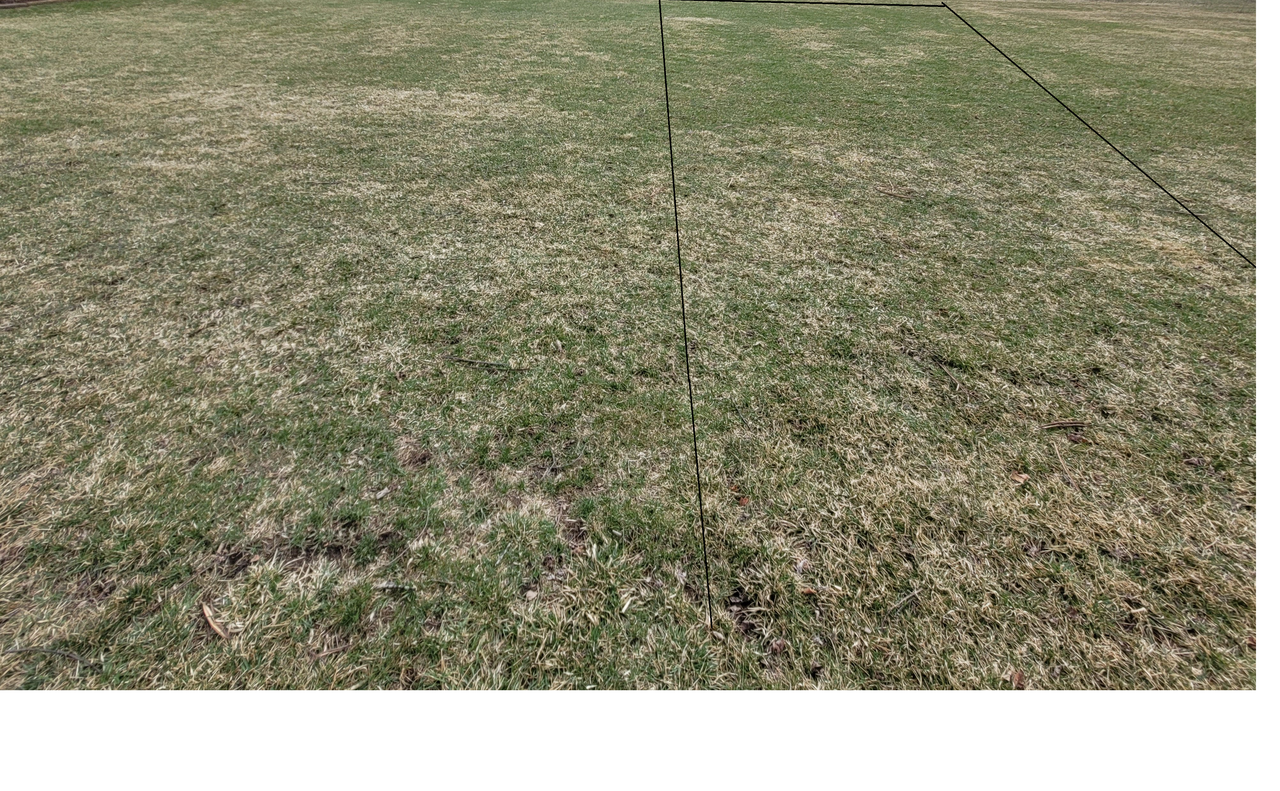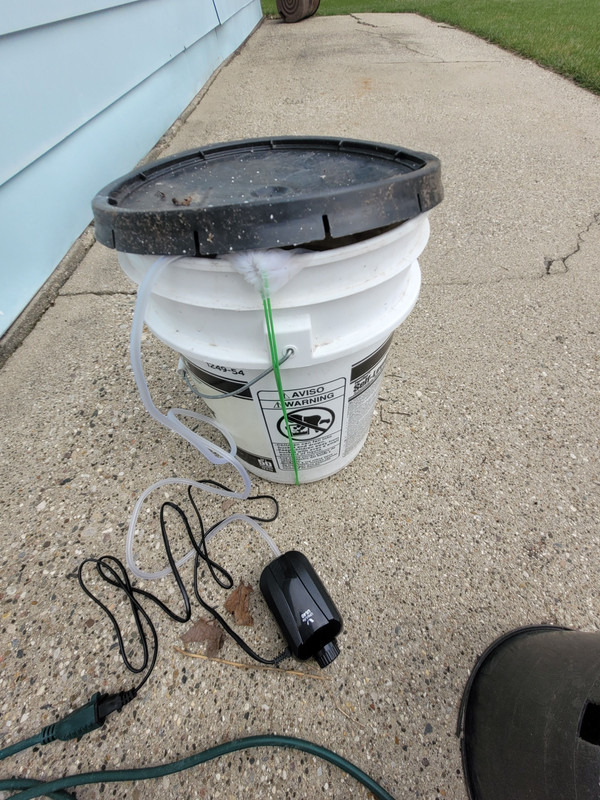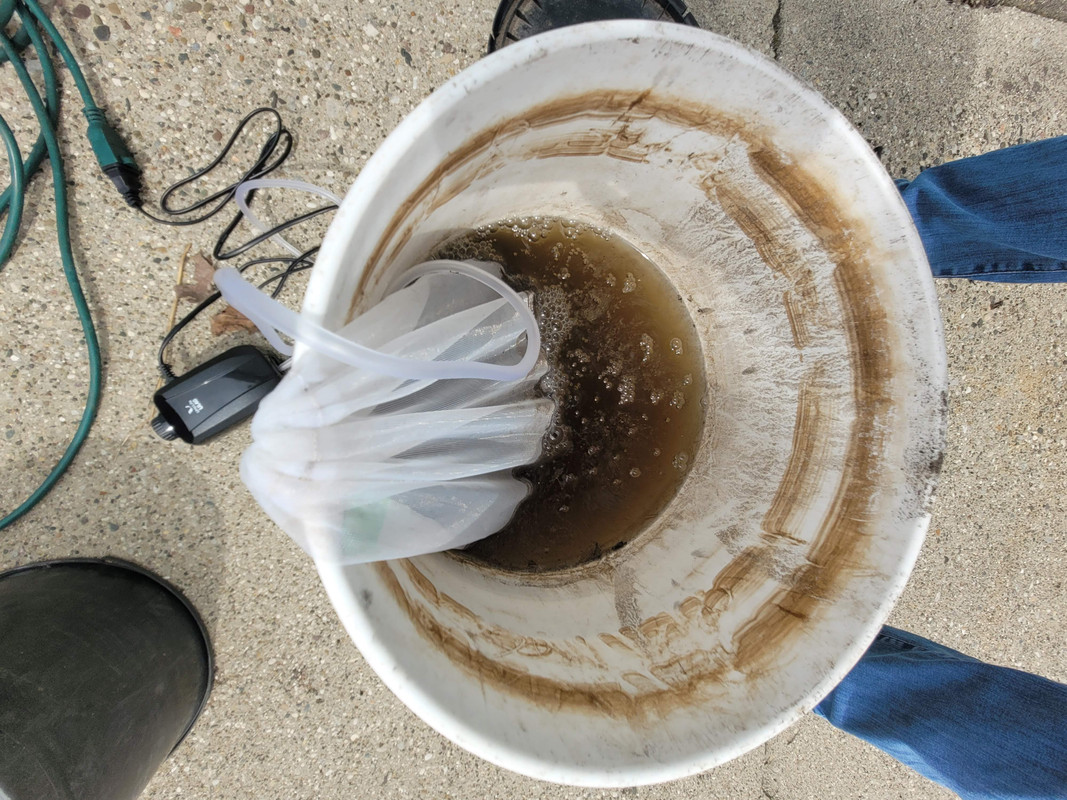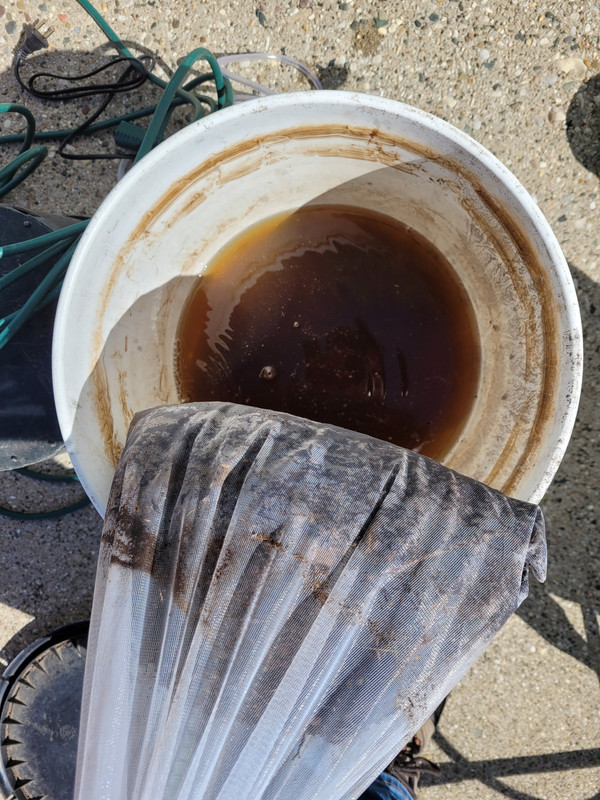Since I could not find any studies or testimonials of people spraying their lawn with compost tea, I decided to do one myself.
My setup.
Ive got decently large 2 bay compost set up that gets filled with kitchen scraps, leaves, lawn debris, chicken bedding and droppings and whatever else I decide to put in there.
The compost pile Ill be pulling from is about 6 months old and turned twice.
Im using 4lb of compost in a tight weave net bag in a 5 gallon bucket with 4 gallons of water.
The compost will sit in the bucket with an aerator stone running for 24-36 hours.
After that time. I sieve the water thru a paint strainer and load it into my pump backpack sprayer (hardly gets use anymore now that I have a tow behind so I wont be upset if it ruins it)
Ill spray the 4 gallons over 2k of lawn within a 12k section of lawn. Having this smaller section within the larger section should allow me to see if this section has any changes vs the non-treated area.
I plan to spray this section every 2 weeks with the same formula and method. Ill update this thread as I go.
All other lawn inputs will be applied to the entire area and will not exclude this 2k section.
Note: I am sure I could make a better compost tea by adding other inputs, but I am trying to make this as simple as possible.
Summary:
4lb of compost
4 gallons of compost tea / 2k of lawn applied bi-weekly
All other inputs the same
My setup.
Ive got decently large 2 bay compost set up that gets filled with kitchen scraps, leaves, lawn debris, chicken bedding and droppings and whatever else I decide to put in there.
The compost pile Ill be pulling from is about 6 months old and turned twice.
Im using 4lb of compost in a tight weave net bag in a 5 gallon bucket with 4 gallons of water.
The compost will sit in the bucket with an aerator stone running for 24-36 hours.
After that time. I sieve the water thru a paint strainer and load it into my pump backpack sprayer (hardly gets use anymore now that I have a tow behind so I wont be upset if it ruins it)
Ill spray the 4 gallons over 2k of lawn within a 12k section of lawn. Having this smaller section within the larger section should allow me to see if this section has any changes vs the non-treated area.
I plan to spray this section every 2 weeks with the same formula and method. Ill update this thread as I go.
All other lawn inputs will be applied to the entire area and will not exclude this 2k section.
Note: I am sure I could make a better compost tea by adding other inputs, but I am trying to make this as simple as possible.
Summary:
4lb of compost
4 gallons of compost tea / 2k of lawn applied bi-weekly
All other inputs the same









